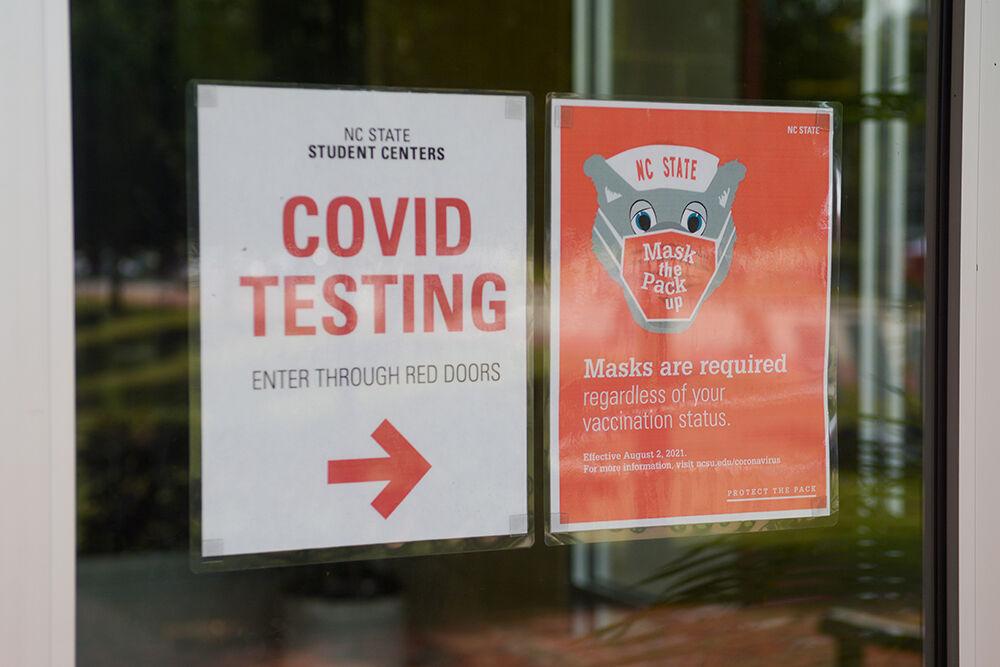As NC State moved toward refunding students for housing and dining after the COVID-19 outbreak, the Department of Fraternity and Sorority Life discussed which fraternity and sorority organizations get refunds. For some of these organizations, getting a refund was not entirely possible.
While many of NC State’s fraternity and sorority organizations operate on a more privatized system, some of the organizations collaborated with the UNC system to tackle refunds. Barry Olson, associate vice chancellor for business administration, talked about how the UNC system helped spark a course of action for refund policies.
“Once we got that directive from the UNC system to issue housing and dining refunds, we were able to begin our own process of refunds,” Olson said. “So, we worked directly with the university because all of our billing is through the central functions of the university, so we have to and always work with the university.”
According to Shelly Brown Dobek, director of the Department of Fraternity and Sorority Life, there are nine university-owned organizations and six private organizations. The nine university-owned organizations are in charge of leasing property and handling student room agreements, along with issuing refunds back to students through the same methods of collecting payments. The six private organizations operate under more freedom, but collaborated with the Department of Fraternity and Sorority Life to come up with a refund plan.
“There’s a lot of challenges for the private groups not inherent because they’re private, but because our Greek villages are very new,” Brown Dobek said. “Lambda Chi [Alpha], for example, is our newest property that opened in August, so they don’t even have a year of revenue in yet. And so to approach refunds, most organizations have reserves to do that. It’s not just cash that’s just sitting there, and they haven’t even built a reserve yet because they haven’t even finished an entire fiscal year.”
Both Brown Dobek and Olson said refund policies for fraternity and sorority organizations primarily came down to the financial situation of the organizations. Over time, fraternities and sororities build up an emergency reserve or a savings account in the case for reparations or refunds. Many of the older organizations and the university-owned organizations had the financial stability to refund in rates close to university housing, but younger organizations had not built up enough of a reserve for a full compensation.
“Not only is each one of those houses in a different financial situation, but they also have different parameters that they follow,” Olson said. “They have private dining contracts, and there are also private contracts with the housing corporations.”
Brown Dobek also discussed refund calculation rates and how fraternities and sororities are calculating how much they can refund.
“StarRez is a program that manages university housing and Greek villages, and it can also calculate how many days a student is in those units,” Brown Dobek said. “What we did was look at what were the total days that were covered by that rate, what the daily rate was and how many unused days were there. The rates might be a little bit different, so it might end up looking like a different dollar figure, but the same math principle was applied to those refunds, and it’s just under 40%.”
With students having to return to their off-campus residences, many applied to stay on campus for special circumstances. Similar to how university-owned housing facilities handled giving students with special circumstances the ability to stay in residence halls, a few of the fraternities and sororities have allowed students to stay in their organization houses.
“It’s a tough spot, and everyone is in a similar scenario across the nation and across the globe,” Olson said. “Our challenge is to make sure that everyone is safe and well, and we prioritize that first. Housing and dining are two of those core needs, and if our students are unable to utilize those, then our belief is that we need to do what we can to get that money back in their pockets.”
With Greek villages undergoing a revitalization project, refunds will also get in the way of future renovations. Brown Dobek said while the Department of Fraternity and Sorority Life had been aggressively saving up money and will not experience a deficit, plans for future building will have to be accommodated.
“We’re just wrapping phase three right now and designing phase four, and so I’ll have almost half a million less to bring forward due to refunds, but there really aren’t ways to offset that,” Brown Dobek said. “You can’t just go in and shut off the water, for example, or else we’ll run into problems with mold issues and rust in your pipes, so we still have to go in and work on those.”













